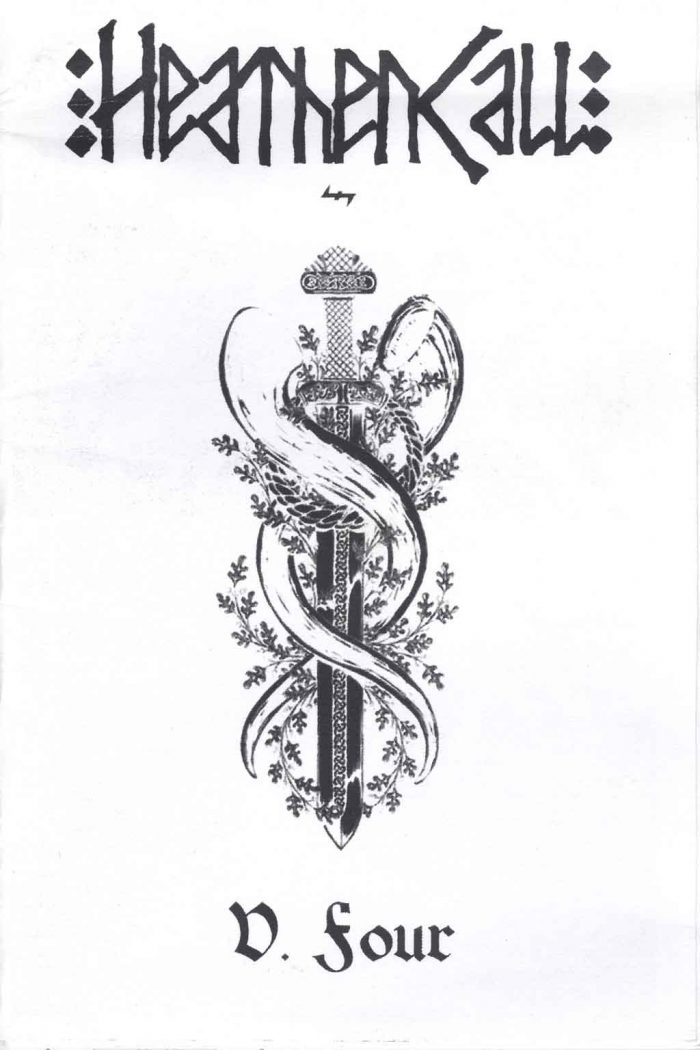
In the early 1990s, before Wikipedia and Metal-Archives destroyed knowledge by standardizing it, zine editors were like guerrilla truth-fighters. At their day jobs, they stood in front of copiers while a colleague nervously kept watch, running off thousands of sheets that they then stayed up until dawn stapling and preparing for mailing. Everyone who could be a fanatic took his or her turn firing off publications.
Heathen Call comes from that same spirit. Its goal is to write about heathen music, which is the intersection of folk and metal with sometimes ambient/soundtrack overtones that focuses on pagan/ancient topics and aesthetics. If the medievalism of Dead Can Dance or the Ren Faire seemed like fun, but with the vicious realist approach of metal, that would be the heathen underground. In this issue, Heathen Call covers long-running folk band Changes, black/folk metal band Gjhallarhorn from Ukraine, heavy metal band Akashah, and black metal band Grafvolluth. While this slants the content by weight toward the metal, the most interesting part is the Robert N. Taylor interview with Changes in which he discusses the challenges of staying realistic in a world dedicated to frivolous distraction to avoid seeing its inner emptiness. Changes formed in 1969 and in theory would have been included in the great folk music explosion, but they did not fit in with the flowers in the hair message of the age. Taylor brings forth not only forgotten history but more fully developed ideas on pagan, heathen and traditional culture than one normally hears.
This zine is spectacularly short and clean. The focus is clearly the content. With elegant but sparse graphics, black-on-white layouts designed for easy reading, and selective content of interviews with questions that get into the depth of purpose and motivation behind these artists, Heathen Call would not fit in with the “what amps do you use?” and “have there been many groupies this tour?” type writing that populist magazines aim for, nor the political dogma zombie recitation of the political magazines. As such, this is a rare animal. It would be interesting to see more interviews with people such as Robert N. Taylor and other thinkers in this area, and getting away from the also-ran black metal bands who are exploring a heathen area tangentially to being participants in the dead, bloated and off-gassing black metal scene, but as a content-based zine Heathen Call provides an interesting, quality read for those interested in this niche spanning multiple genres.
4 CommentsTags: akashah, changes, gjallarhorn, grafvolluth, heathen call, robert n. taylor, zine

